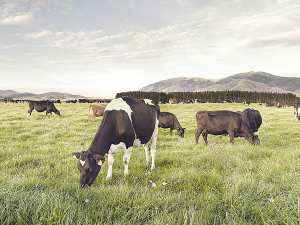OPINION: 2023 will be an interesting year in both the farming and political spheres.
Last year ended with farmer confidence - which was already at low levels - plummeting further to sit at an historical low.
According to the Rabobank Rural Confidence Survey released late last year the farmer net confidence reading slumped to -71%. This is the lowest in the 20-year history of the survey and far exceeded the previous low of -45% recorded and the dairy downturn in 2015.
Rabobank New Zealand chief executive Todd Charteris said farmers from all the sectors are now significantly more pessimistic about the prospects for the broader agri economy - with a cocktail of concerns weighing heavily on farmer sentiment.
"Rising farm input costs and government policy were the two major reasons cited by farmers with a pessimistic outlook for the year ahead," he said.
A major challenge that the farming sector faces in 2023 is where the controversial farm emissions regulations will end up. Just before they disappeared on holiday for six weeks, Prime Minister Jacinda Ardern and Agriculture Minister Damien O'Connor released a somewhat half-cooked announcement on agricultural emissions pricing, saying that a final decision will be made by Cabinet in early 2023 with the aim to introduce legislation by the middle of the year.
Even the Government's partners in He Waka Eke Noa (HWEN) - namely Beef+Lamb NZ and DairyNZ - were uninspired by the announcement, saying much work still needed to be done.
Interestingly, one of the big proponents of HWEN, Beef+Lamb NZ chair Andrew Morrison, is up for re-election in March. However, he could well pay the price for the perceived poor advocacy and communication to farmers by HWEN and Beef+Lamb NZ.
Already, Groundswell NZ is promoting Morrison's competitor, former Southland Feds president Geoffrey Young, for what it says is "meaningful change". However, the question is, will farmers - who claim they are unhappy with the status quo but are notoriously appalling at voting in industry body elections - actually vote, and vote for change?
Speaking of elections, the current Labour Government faces the ballot boxes later this year. One can bet that rural and provincial voters, who saw many of their regional seats turn red at the previous Covid-dominated election in 2020, send a clear message and vote against the current Government. The myriad of unpopular rules and regulations it has already legislated or proposed for the farming sector will finally catch up with them.
Pass the popcorn, it is going to be an interesting year!



















